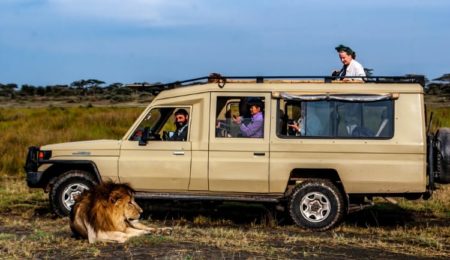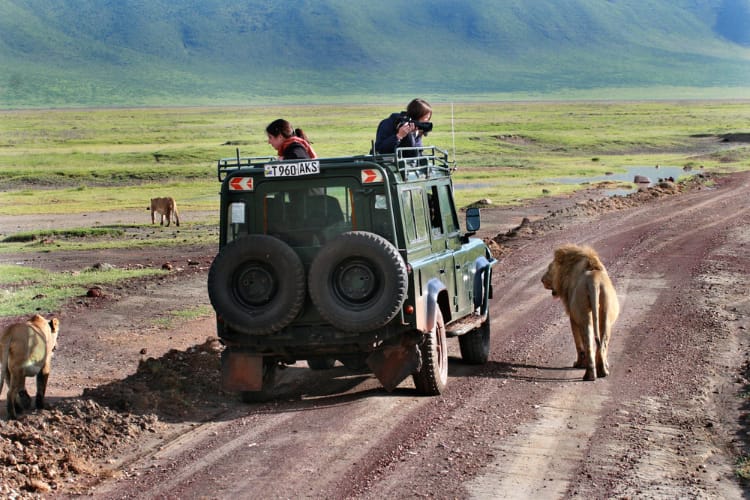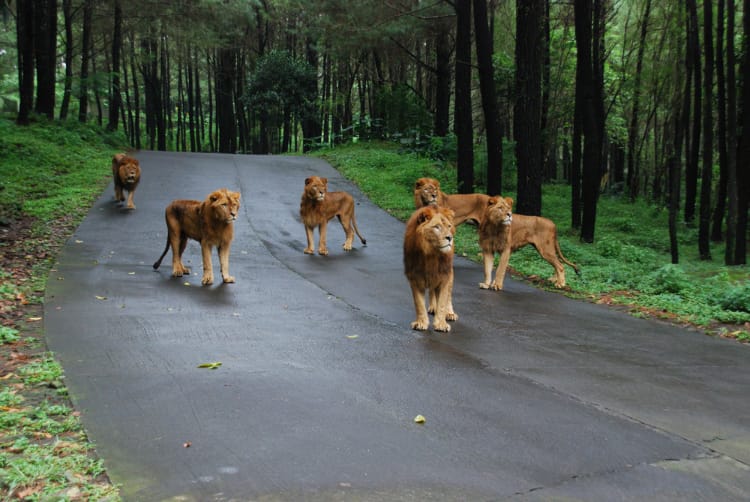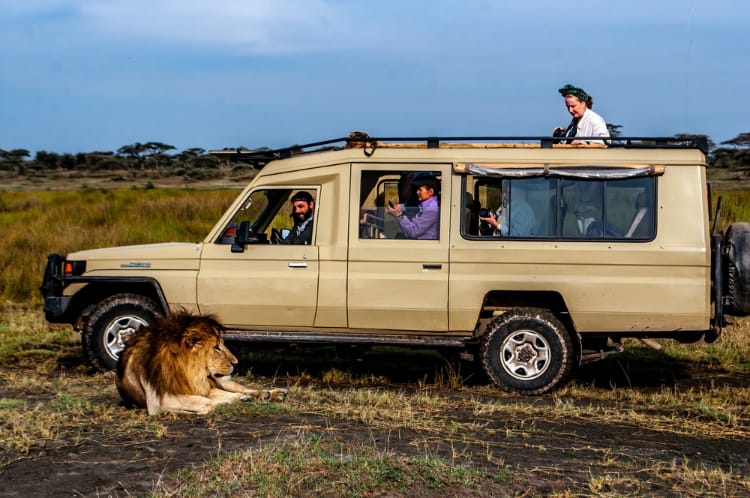Why Don’t Lions Attack People in a Safari Vehicle?

If you are planning to go on a safari game tour in wildlife reserves, especially in African countries, it is quite likely that you may come across lions during the tour. Lions are meat-eating animals at the top of the food chain. They are natural predators who hunt for food in the wild. But why don’t lions attack people in a safari vehicle? The fact that they don’t is why wildlife enthusiasts venture on jungle tours on safaris or jeeps to see the animals in close quarters in their natural habitat.
Table of Contents
Significance of Size in Predator-Prey Dynamics
There aren’t many recorded incidents of lions attacking a safari or a tourist jeep. The main reason behind this is the natural predator-prey instincts.
You might have seen lions attacking deer and antelopes, but adult elephants are rarely shaken up when they are near lions. This is primarily due to their large size. Lions prey on smaller animals when they are hungry.
When lions see human beings, they don’t think twice before attacking them because they feel threatened. These animals become even more aggressive when people panic and start running away. However, human beings are safer in a jeep. This is because lions perceive safaris and jeeps as unusual “big beasts†due to their large size. Because of this, they are not tempted to attack them. Therefore, they usually stay away from these large vehicles and dare not go near them. That is why people are asked to stay on safaris during organized game tours.
Moreover, tourists are strictly advised not to “detach themselves†from the “beast body.†This means that they are warned not to get off the vehicle or venture on their own during the game tour without local guides.
Precautionary Measures Taken by Parks and Reserves to Ensure Safety

Lions attack primarily for two reasons – when they are hungry and when they feel threatened. Therefore, the key strategy to ensure human safety during game tours is to take precautions so that the lions don’t feel threatened.
To achieve this, the local officials and guides usually train the lions to get used to the safari vehicles as part of the landscape before they open the natural reserve for tourists. Therefore, lions ignore these vehicles when they pass by as they don’t feel threatened.
On rare occasions when lions do approach jeeps, the local guides instruct the tourists to stay still and quiet. They also warn tourists not to stand up or put their heads out when these predators are near the vehicle, as it changes the silhouette and makes the animals feel threatened.
What Should You Do to Survive if You Encounter a Lion?

Though lions are now used to the safari vehicles in wildlife reserves, they are still not used to tourists. Lions perceive humans as a threat, which is also the primary reason they attack humans. Lions are usually more aggressive than usual when they are with their cubs, as they are protective of their offspring.
Furthermore, lions are predominantly nocturnal animals. They lose their inherent fear of humans at night and are more dangerous then. So, avoid camping in areas where there is a high density of lions, especially at night.
Encountering a lion in the wild can be a nerve-wracking experience, but knowing how to react can increase your chances of survival. It’s crucial to remain calm and avoid running in panic, as this could trigger the lion’s predatory instincts and make it more aggressive. Instead, try to make yourself look bigger by raising your hands and opening your jacket, and avoid sudden movements that could startle the lion. It’s also important to maintain eye contact with the lion without staring in a threatening manner. Remember, lions usually attack when they feel threatened, so it’s important to give them space and avoid provoking them. If you follow these guidelines and listen to the instructions of your local guide, you can safely enjoy your safari game tour in lion country.
























